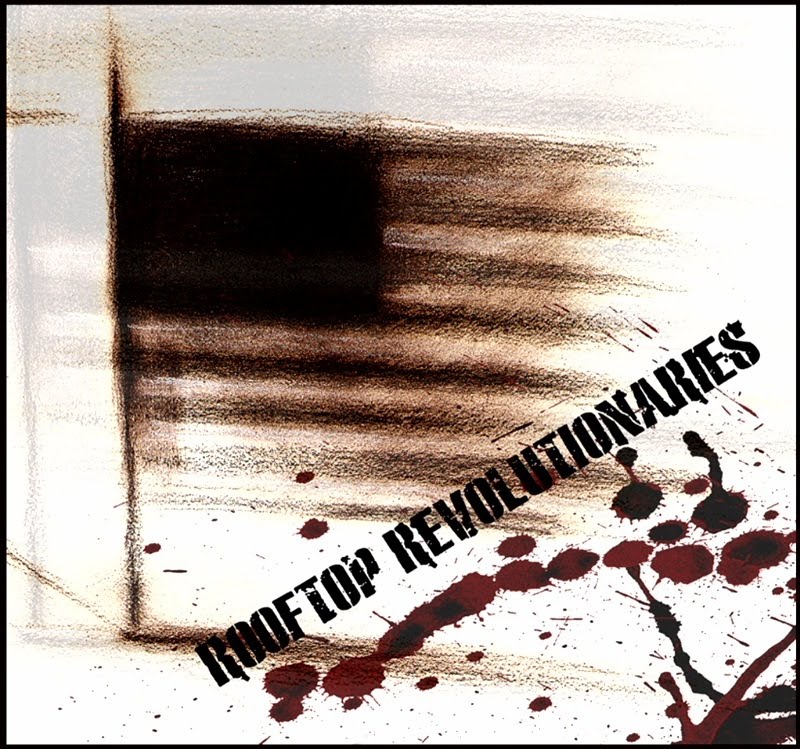And speaking of staying on track, how about Afghanistan?
According to a speech by President Obama in the Rose Garden on Tuesday, we are on track for the proposed withdrawal of 23,000 troops by the end of summer and the eventual full withdrawal by the end of 2014. Following the events of this past weekend, that seems an awfully long time to dodge the proverbial and the literal bullets.
While Obama's plan is still too short for many military moguls, he maintained that any quicker withdraw would be do more harm than good. He stressed the "responsibility" of the US to finish what we started.
"I am confident that we can continue the work of meeting our objectives ... responsibly bringing this war to a close."
The question is, how?
A US Army Staff Sergeant sneaking off his base at 3am and killing 16 civilians (9 of which were children) is just the latest in a long line of diplomatically disastrous, culturally confused events that tear and gnaw at any semblance of a working relationship we ever had with Afghanistan.
The Quran burnings are still a paramount concern, mostly due to the fact that, unlike the killing spree, the Quran is something that effects all Afghanis, something they can all rally behind as one, particularly behind an extremist entity such as the Taliban.
Yet this highlights a very key issue in Afghanistan: we don't understand the who, what or why. We don't understand the people of Afghanistan at all. Their culture and practices continue to elude us and there has been no effort to blend our proposed dealings with their way of life. It is, as usual, our way or the highway. Not a famous diplomatic musing.
This flows into the second point. We don't know what the hell is going on. That may sound trite and simplistic, but it's true. If we did have a firm grasp on the people, our dealings with them would lead to the construction of trust, not coffins. Not three weeks ago, an Afghan gunman killed two US officers inside the Interior Ministry's headquarters, notching 10 Americans this year that have been killed by men they were training. That obviously doesn't say a lot about the bonds forged, and it also calls into question the what. What the hell are we doing? Are we training people? If so, why are they using that training to kill us?
And there's the why. Why are we doing what we're doing?
Why is our strategy blowing up in our face? It seems that our combined effort of squeezing out and destroying the Taliban while building a better Afghanistan has come with a side effect of hatred and resentment, and that's a spiky precipice to build upon.
And so, each step forward has come with a stumble and drop-kick backwards. We're not seen as helpful visitors, we're seen as odious occupiers (not the Wall Street kind). We're not seen as understanding allies, we're seen as bombastic villains.
And no amount of soothing mentions from our commander-in-chief will change that. And due to our thus far comfortable stranglehold on the Afghan government, we're not going to change our actions to make amends.
Admittedly, Karzai and US forces have had issues from the get-go, but most of those issues stem from the fact that Karzai just isn't popular. He's not seen as an Afghani to many other than us, and we have pushed his presidency, and upheld it in the face of ever mounting insurgency. A simple truth is that with a different leader, one not seen as an imperial puppet, insurgents would have a harder time recruiting new killing machines in the epic battle against our evil forces.
But Karzai has played ball with us so far, and we want him to stay. Another example of not understanding "who" we're dealing with.
Yet with these blood soaked incidents piling high, even Karzai can't ignore our continued failures. First drafted in 2010, a new law in Afghanistan will require all foreign aid and business workers to use Afghan security as opposed to private. Out west, the powers-that-be predict that that law will trigger the shutdown of almost every development project. Bottom line: no trust. No one's gonna head out to the build site if they think the person driving them is gonna open fire before their seat belt is buckled.
So again, why are we hanging on?
Karzai first pulled this card in 2010, but quickly withdrew it back up his sleeve after Gen. Petraeus phoned his national security adviser saying, “Your president has put me in an untenable position. Please take note of that word. I chose it carefully.”
Karzai, fearing the withdrawal of Petraeus would mark the withdrawal of the US forces, backed down. Now, that fear is shrouded with smoke and dead bodies, an untenable argument against the reality of the situation.
That bottom line of no trust is the bottom line we need to focus on. We are not building anything but resentment and hatred. This war is not one to be won, it is one to be ended.
Even if development projects do move forward despite the new legislation, we are not gaining ground here. Again, we make a little headway which is then quickly swatted by exceedingly tense and hostile ties.
And at this point, I feel the argument can be made and should be made, that even if we do decide to move forward, tucking our pride and taking every possible chance to better understand, integrate and respect, it's too late.
Our best bet now is to salvage what we can and let the pieces fall where they may. This is a quagmire. It is an endless exercise in futility. Bring the troops home, and from the diplomatic desk, try to unfuck this situation. Bombs, mortars, guns and lunatics don't fix, they destroy.
It's over. Call it.
